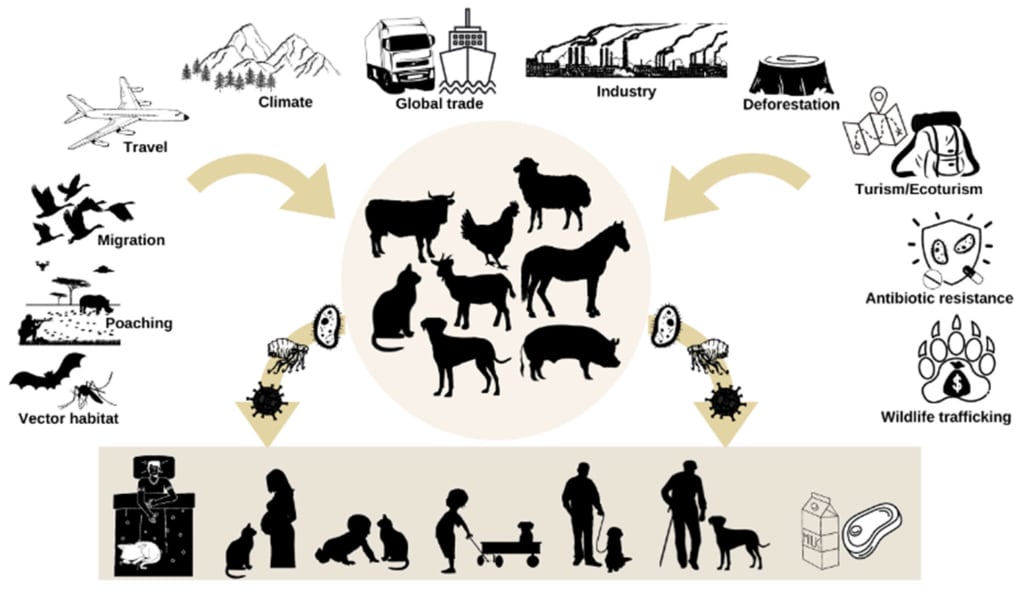The cultural differences in attitudes towards pet ownership.
ntricate Insights into Global Perspectives on Pet Ownership

The cultural differences in attitudes towards pet ownership
In many cultures around the world, pets are considered an integral part of the family. However, the attitudes towards pet ownership and the role that pets play in people's lives can vary greatly depending on cultural factors. Understanding these cultural differences can provide insight into the way people interact with their pets and the importance of pets in different societies.
In some cultures, pets are seen primarily as functional animals, used for specific purposes such as hunting or guarding. In other cultures, pets are viewed as companions and members of the family, with their well-being and care given high priority. The way people treat their pets can reflect broader cultural values and beliefs, including attitudes towards animals, individualism vs collectivism, and the role of animals in society.
Attitudes towards pets can also vary based on religious beliefs. In some religions, such as Hinduism and Buddhism, animals are considered sacred and are often treated with great respect. In other religions, such as Islam and Judaism, certain animals are seen as unclean and are not kept as pets. Understanding these cultural differences can help prevent misunderstandings and conflicts related to pet ownership.
In Western cultures, pets are often seen as valued members of the family, with many people considering their pets to be their "fur babies." This trend towards humanizing pets has led to an increase in pet pampering and the growth of the pet industry. In contrast, some Eastern cultures view pets as secondary to humans and may not prioritize their care and well-being in the same way as Western cultures.
One example of a cultural difference in attitudes towards pets can be seen in the traditional Chinese practice of eating dog meat. While this practice has been largely condemned by Western cultures, it is still common in some parts of China and other Asian countries. In these cultures, dogs are viewed primarily as a source of food, and their value as companions is not widely recognized.
Another example is the role of cats in Islamic cultures. While cats are not kept as pets in many Islamic countries, they are often welcomed as household animals due to their reputation for cleanliness and their association with the Prophet Muhammad. In fact, there is a story in Islamic tradition about a cat who saved the Prophet Muhammad's life by chasing away a poisonous snake.
Cultural differences in attitudes towards pet ownership can also be seen in the way animals are treated in different societies. In some cultures, animals are treated with great respect and care, while in others, animals may be subjected to abuse and neglect. For example, in some Asian countries, the dog meat trade has been associated with cruel and inhumane practices, while in Western cultures, animal welfare organizations and laws protect pets from mistreatment and abuse.
It is also important to recognize that cultural attitudes towards pets can change over time. In many Western cultures, pets were traditionally seen as working animals or outdoor creatures, but over the past century, they have become increasingly integrated into the home and family life. Similarly, as global attitudes towards animal welfare and rights continue to evolve, we may see changes in the way pets are treated in different cultures.
In conclusion, cultural differences play a significant role in shaping attitudes towards pet ownership and the role of pets in society. Understanding these differences can help promote respect and understanding between cultures, prevent conflicts related to pet ownership, and ensure that pets are treated with the care and respect they deserve. It is important to recognize that cultural attitudes towards pets are constantly evolving, and that continued education and awareness can help ensure that pets are treated with the care and respect they deserve in all cultures.
About the Creator
Abdullah Javaid Khan
Im a Passionate Writer with a talent for crafting compelling stories and insightful commentary. With 2 Years Of experience in the writing industry,i have honed skills across a range of genres,from fiction to facts,journaslism to poetry.
Enjoyed the story? Support the Creator.
Subscribe for free to receive all their stories in your feed. You could also pledge your support or give them a one-off tip, letting them know you appreciate their work.






Comments
There are no comments for this story
Be the first to respond and start the conversation.